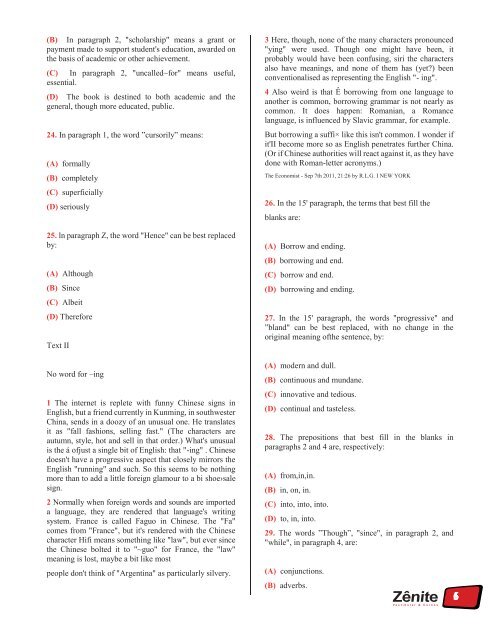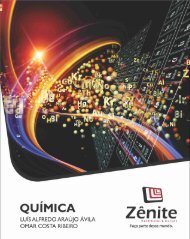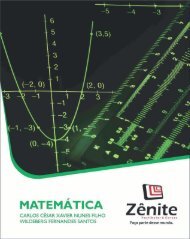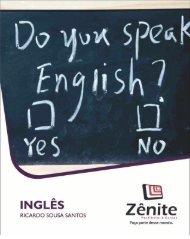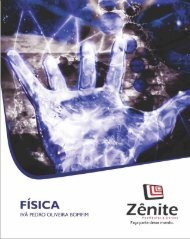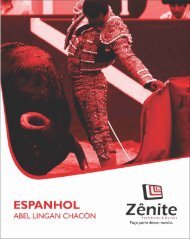You also want an ePaper? Increase the reach of your titles
YUMPU automatically turns print PDFs into web optimized ePapers that Google loves.
( B ) In paragraph 2, "scholarship" means a grant or<br />
payment made to support student's education, awarded on<br />
the basis of academic or other achievement.<br />
( C ) In paragraph 2, "uncalled~for" means useful,<br />
essential.<br />
( D ) The book is destined to both academic and the<br />
general, though more educated, public.<br />
2 4 .In paragraph 1, the word ”cursorily” means:<br />
( A ) formally<br />
( B ) completely<br />
( C ) superficially<br />
( D ) seriously<br />
2 5 .ln paragraph Z, the word "Hence" can be best replaced<br />
by:<br />
( A ) Although<br />
( B ) Since<br />
( C ) Albeit<br />
( D ) Therefore<br />
Text II<br />
No word for –ing<br />
1 The internet is replete with funny Chinese signs in<br />
English, but a friend currently in Kunming, in southwester<br />
China, sends in a doozy of an unusual one. He translates<br />
it as "fall fashions, selling fast." (The characters are<br />
autumn, style, hot and sell in that order.) What's unusual<br />
is the á ofjust a single bit of English: that "-ing" . Chinese<br />
doesn't have a progressive aspect that closely mirrors the<br />
English "running" and such. So this seems to be nothing<br />
more than to add a little foreign glamour to a bi shoe›sale<br />
sign.<br />
2 Normally when foreign words and sounds are imported<br />
a language, they are rendered that language's writing<br />
system. France is called Faguo in Chinese. The "Fa"<br />
comes from "France", but it's rendered with the Chinese<br />
character Hifi means something like "law", but ever since<br />
the Chinese bolted it to "~guo" for France, the "law"<br />
meaning is lost, maybe a bit like most<br />
people don't think of "Argentina" as particularly silvery.<br />
3 Here, though, none of the many characters pronounced<br />
"ying" were used. Though one might have been, it<br />
probably would have been confusing, siri the characters<br />
also have meanings, and none of them has (yet?) been<br />
conventionalised as representing the English "- ing".<br />
4 Also weird is that Ê borrowing from one language to<br />
another is common, borrowing grammar is not nearly as<br />
common. It does happen: Romanian, a Romance<br />
language, is influenced by Slavic grammar, for example.<br />
But borrowing a suffi× like this isn't common. I wonder if<br />
it'II become more so as English penetrates further China.<br />
(Or if Chinese authorities will react against it, as they have<br />
done with Roman-letter acronyms.)<br />
The Economist - Sep 7th 2011, 21:26 by R.L.G. I NEW YORK<br />
2 6 .In the 15' paragraph, the terms that best fill the<br />
blanks are:<br />
( A ) Borrow and ending.<br />
( B ) borrowing and end.<br />
( C ) borrow and end.<br />
( D ) borrowing and ending.<br />
2 7 .In the 15' paragraph, the words "progressive" and<br />
”bland" can be best replaced, with no change in the<br />
original meaning ofthe sentence, by:<br />
( A ) modern and dull.<br />
( B ) continuous and mundane.<br />
( C ) innovative and tedious.<br />
( D ) continual and tasteless.<br />
2 8 .The prepositions that best fill in the blanks in<br />
paragraphs 2 and 4 are, respectively:<br />
( A ) from,in,in.<br />
( B ) in, on, in.<br />
( C ) into, into, into.<br />
( D ) to, in, into.<br />
2 9 .The words ”Though”, "since", in paragraph 2, and<br />
"while", in paragraph 4, are:<br />
( A ) conjunctions.<br />
( B ) adverbs.<br />
165


